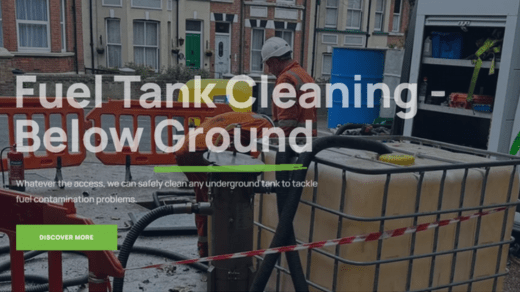Fuel tanks play a critical role in storing and delivering clean fuel to engines, powering a wide range of vehicles, equipment, and machinery. Over time, these tanks can accumulate sediments, contaminants, and microbial growth, compromising fuel quality and engine performance. Fuel tank cleaning is a crucial maintenance task that ensures the efficiency, reliability, and longevity of the entire fuel system. This article explores the importance of fuel tank cleaning, the process involved, and the benefits it brings to various industries.
The Importance of Fuel Tank Cleaning:
- Preventing Contamination:
Over time, sediments, water, and microbial contaminants can accumulate in fuel tanks. These contaminants can lead to fuel oxidation, clogged filters, and injector issues. Regular fuel tank cleaning helps prevent the buildup of contaminants, ensuring that clean fuel reaches the engine. - Avoiding Corrosion:
Metal fuel tanks are susceptible to corrosion, especially in the presence of water and impurities. Corrosion can lead to tank leaks, compromising fuel integrity and potentially causing environmental hazards. Cleaning the tank and applying corrosion inhibitors during maintenance mitigate the risk of corrosion, extending the tank’s lifespan. - Maintaining Fuel Quality:
Clean fuel is essential for optimal engine performance. When sediments or water accumulate in the tank, they can be drawn into the fuel lines and eventually reach the engine. This can lead to fuel system issues, reduced combustion efficiency, and increased emissions. Regular fuel tank cleaning ensures the maintenance of high-quality fuel.
The Fuel Tank Cleaning Process:
- Tank Inspection:
The first step in fuel tank cleaning involves a thorough inspection of the tank. This includes checking for signs of corrosion, inspecting the tank interior for sediment buildup, and assessing the condition of seals and gaskets. - Fuel Removal:
Before cleaning the tank, any remaining fuel must be removed. This is typically done by draining the fuel into a temporary storage container. This step ensures a safe and effective cleaning process. - Mechanical Cleaning:
Mechanical methods are employed to dislodge and remove sediment and sludge from the tank walls. This may involve the use of specialized tools or devices designed to agitate and break loose contaminants. The dislodged material is then removed from the tank. - Cleaning Agents and Additives:
Cleaning agents or fuel additives may be introduced to dissolve contaminants and help emulsify water in the tank. These agents enhance the cleaning process and are often essential in removing stubborn deposits. - Tank Rinsing and Drying:
After the mechanical cleaning and the use of cleaning agents, the tank is thoroughly rinsed to remove any remaining debris or cleaning agents. Proper drying is crucial to eliminate any residual moisture before refilling the tank with clean fuel.
Benefits of Fuel Tank Cleaning:
- Optimized Engine Performance:
Clean fuel tanks contribute to improved engine performance by ensuring a consistent and clean fuel supply. This, in turn, enhances combustion efficiency and minimizes the risk of engine issues. - Extended Equipment Lifespan:
Regular fuel tank cleaning and maintenance contribute to the longevity of both the fuel tank and the associated equipment. By preventing corrosion and contamination, the need for costly repairs or replacements is minimized. - Reduced Maintenance Costs:
Proactive fuel tank cleaning reduces the likelihood of fuel system issues, minimizing the need for expensive repairs. This results in cost savings over the long term for industries reliant on efficient and reliable machinery. - Enhanced Safety and Environmental Compliance:
Clean fuel tanks contribute to overall safety by minimizing the risk of leaks, spills, or equipment malfunctions. Moreover, environmental compliance is ensured by preventing the release of contaminated fuel into the ecosystem.
Conclusion:
Fuel tank cleaning is an indispensable aspect of routine maintenance that ensures the efficient and reliable operation of engines and equipment across various industries. By addressing issues such as contamination, corrosion, and fuel quality, businesses can optimize their operations, reduce maintenance costs, and contribute to a safer and more environmentally friendly working environment. Incorporating regular fuel tank cleaning into maintenance schedules is a proactive step towards safeguarding assets and ensuring the longevity of critical equipment.
Check out Dp Tanks for more.

